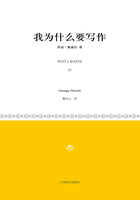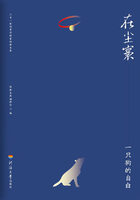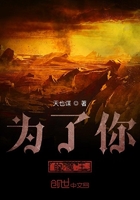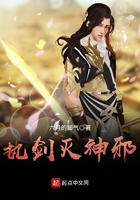Animal Companionship:A Mirror of Human Loneliness
The Sirens of Titan:Hatred Between Wife and Husband
Human beings have been in close contact with animals for thousands of years。 At first, it was in the form of hunting and being hunted, in the process of which humans had developed great amount of knowledge about animals and admiration for their wisdom。When around 10,000 B。C。the nomadic hunter-gatherers began to settle down and develop farming, domestication followed(Soave 4)。From domestication arose pet-keeping。This is the history which John Berger refers to as the long period when animals were“with man at the center of his world”(Berger 1)。During this history, domestic animals played a vast range of roles:surrogate companions, siblings, lovers, victims, workers, parents, competitors, deities, oracles, enemies, kinfolk, and caretaker-watchmen。They are makers of manure, milk, meat, and skins, as well as sacrificial offerings and symbolic and aesthetic objects(Shepard 142)。
Human dependence on animals is therefore thorough and multifaceted, not only materially and physically, but also culturally, socially, spiritually, and psychologically。They count on animals for food, clothing, transport, labor, sport, adornment, companionship, and mental and spiritual wholeness。Thequotation from Indian Chief Sealth of the now state of Washington well delineates the importance of animals to humans:“The white man must treat the beasts of this land as his brothers。What is man without the beasts?If all the beasts were gone, man would die from a great loneliness of spirits。For whatever happens to the beasts also happens to man。All things are connected。Whatever befalls the earth befalls the sons of the earth”(qtd。in Soave 3)。
Nevertheless, this rich and intimate relationship underwent drastic changes in the West during the century between 1850 and 1950,when industrialization and urbanization gradually replaced the open, embracing, agricultural landscape with the confning, crowded, and segmented city。 Nature was pushed farther and farther away from the human horizon。Animals, wild and domestic, became less and less the common experiences of men, women and children。There arose, to borrow a word from Shepard, a“biological void”in the urban existence(Shepard 143)。The human contact with animals was reduced to chiefy two forms:the meat and the pet。
Meanwhile, the traditional family structures disintegrated and America entered the era of nuclear family。 The typical family consists of two parents and a couple of children, usually living away from relatives。Due to the stresses of life in the industrialized city and increased mobility, the middle classes began to have fewer children, for whom the household could be a lonely place。Without siblings and without easy access to street friends, children are left with nobody but stuffed toys(usually in the imitation of animals)and the pet to turn to for companionship and emotional consolation。For adults, loneliness was equally an unavoidable and unbearable condition, as the modern society began to“segment and isolate people into their private spheres, to discourage casual physical contact, and to frown upon the enormously satisfying stances of patronage, such as laying one's hand on another's shoulder”(Tuan 112)。
As a consequence of the social transformation, people's dependenceon the pet grew unprecedentedly。 Whereas the entertaining and decorative qualities of pets were highly valued in the late Victorian age and the frst half of the 20th century, since the 1960s, greater emphasis was given to their companionability(Franklin 88-9)。In terms of dogs, for example, breeds such as poodles, Pekingese, and pugs that were regarded as fashionable ornaments and playthings in the Victorian age gave way to breeds with heightened companionable and social characteristics, such as Labradors retrievers and spaniels, or Rottweilers, Dobermans, Staffordshire bull terriers, and German Shepherds, all of which are dogs notable for antisocial guarding or fighting breed characteristics but also a reputation for being extremely loyal to a single person or principal carer,“a feature consistent with increased needs for companionship, particularly among people living alone”(Franklin 94)。
This is a good place to put in a note that, in Vonnegut's fction, the dogs are always in the latter category:the German shepherd, as in Slaughterhouse-Five and Galapagos(Selena's dog),the mastiff, as Beatrice's dog skeleton and Rumfoord's famous dog in The Sirens of Titan, the golden retriever, as the dog of Mary Hepburn in Galapagos, or the Doberman and the Labrador retriever, both in Breakfast of Champions。There is only one occasion that a decorative dog is assigned to a character, a Pekingese of a“puffy old woman”in Jailbird, and this is definitely for ridicule, as the dog is described as a replica of her elderly owner:they both are wearing a diamond necklace(J 106)。
According to John Berger who wrote in 1977,it is estimated that there were at least forty million dogs, forty million cats, fifteen million caged birds and ten million other pets in America(12)。 Yi-fu Tuan also notes that more than half of the households in America have a dog or a cat or both and every year some six billion dollars are spent on pets, not to mention the lavish care given to them(88)。Pets offer companionship for the lonely, assistance for the handicapped, prolonged life expectancy for the sick, and therapy for the unhappy(Franklin 84)。Increasing amount of research showthat companion animals possess therapeutic functions, the practice of which is known as“animal-facilitated therapy”(Shepard 147-49)。Leo Bustad, Professor of Western Washington University's Department of Veterinary Medicine, confdently asserts,“We believe that the health of our society is dependent on the nature and the extent of the association between people and other animals and their environment。”In his own medicinal practice and teaching, Prof。Bustad recommends pets of various kinds to be present everywhere in the working place(Shepard 149)。
Pets, or companion animals, therefore, have become an indispensible relation for humans in the modern life。 Residing in the pet is the human ontological dependence for companionship, warmth, and affection。Moreover, being both natural and unnatural, as most pets are genetically altered by human manipulation, pets play the dual role as both living creatures and symbolic tokens, and the latter role is often stressed in the depiction of the human condition in the postmodern world, its incompleteness, fragmentation, alienation, anxiety, and loneliness。This is one of the major roles that the large number of pet animals play in Vonnegut's fctional world, a leading characteristic of which is loneliness。
In the 1980 interview with Charles Reilly, Vonnegut remarked,I don't pretend to be an expert but, really, I'm not that soured on the American economic system。 I think most Americans'discomfort is social in nature, not economic。We don't have a severe food problem, for example。Admittedly we have a shocking number of people who are hungry, but they represent a small percentage of the population。When you speak about the major problems of America, I think you have to concede that food and shelter are fairly well taken care of。
At the same time, I feel that people today are terribly lonely。 In fact, as I proposed to Shriver when he was running for Vice-president, a candidate who ran on the promise of“Lonesome No More”would win an awful lot of votes。It was my thought that the people of this country would be well served by a project in which we could re-form ourselves into artifcially extended families。(CKV 224)
Unlike the voice in his novels that is oftentimes characterized by satire, cynicism and irony, Vonnegut is all seriousness in his interviews。 In the above quoted interview, he makes it clear that the problem in America is not economic but social。Put it in another way, loneliness is at the core of all American social problems。
This is not the frst time Vonnegut had talked about loneliness as an American social malaise。 In his 1973 Playboy interview, for example, he complained about America being“a lonesome society that's been fragmented by the factory system”(CKV 79)。Lamenting the demise of the traditional extended family when people can always go to visit relatives for help, comfort, or simply a change of life, he said,And this is no longer possible。 Each family is locked into its little box。The neighbors aren't relatives。There aren't other houses where people can go and be cared for。When Nixon is pondering what's happening to America—“Where have all the old values gone?”and all that—the answer is perfectly ******。We're lonesome。(CKV 80)
Loneliness is at the heart of the American life—this is the overarching theme in almost all of Vonnegut's fiction。 Despite the vast diversity of specific concerns in individual novels, be it the brutality of war, the dehumanization of technology, the danger of amoral science, the oppression and injustice of political-economic capitalism, etc。,the feeling of loneliness permeates every page of the novels and enwraps oppressively the hapless protagonists。
Billy Pilgrim, Paul Proteus, Winston Niles Rumfoord, Howard W。 Campbell, Wilbur Swain, Kilgore Trout, and Eugene Debs Hartke are allsuch characters。No matter how hard they try, they can hardly succeed in casting off the shadow of loneliness that shrouds them。Their loneliness might derive from various causes, traumatic experiences of butchering, wartime killing, survivor guilt, or simply unaccountable discontentment with life, but deep down beneath these empirical factors, there lays one thing in common, namely, the failure of relationships and a yearning for emotional completeness。“Locked into their little boxes,”these characters are all lonely hearts that are isolated, not only from society and the natural world, but also their own folks。As Peter Reed notes, Vonnegut's marriages seldom seem to work well, and frequently they tend to lock out their associations。“Vonnegut implies that the modern model mini-family of Mom, Dad, ****, Jane, and Spot fails where the larger family unit once succeeded,”Reed observes,“Mom and Dad may have a strained relationship, **** and Jane may be cut off from the parents, and only Spot remains capable of uncritical affection”(1977:180)Spot, of course, is the family dog。Unable to fnd human fellowship in the disintegrating family or the larger, estranging, sterile postmodern society, Vonnegut's characters turn involuntarily to the animal。In a large proportion of Vonnegut's novels, the protagonist is emphatically introduced with an animal companion on his/her side, which, more often than not, is the uncritical dog。
“The man and his dog”,therefore, with its rich classic allusions, could best sum up the human condition of loneliness in the postmodern world。 Three types of relation are examined in light of this relation:wife and husband, father and son, brother and sister。
If the epithet“the man and his dog”is to be applied to a particularcharacter, it is the leading hero of The Sirens of Titan(1959)—Winston Niles Rumfoord。 Projected as a legendary, god-like fgure, Rumfoord never makes his appearance, or in the Vonnegutian parlance,“materializes”,without his dog。As a matter of fact, the frst time Rumfoord is introduced to the audience, at the very outset of the story, he is referred to exactly as“a man and his dog”:
There was a crowd。
The crowd had gathered because there was to be a materialization。 A man and his dog were going to materialize, were going to appear out of thin air—wispily at frst, becoming, fnally, as substantial as any man and dog alive。(ST 8)
Throughout the novel, Rumfoord is mentioned together with his dog, whose name is Kazak, a big mastiff also referred to as“the hound of the space”(ST 19)。 The man and his dog come and go like form and shadow。The closeness of them is so emphatically repeated that“Rumfoord and his dog”almost becomes a fxed compound and many scholars follow the pattern in their discussion of the novel。It seems imperative that the dog should not be omitted。It is doubtful, however, whether scholars seriously attribute much significance to the dog, because very few of them has given actual critical attention to the dog, taking him mainly as a tag of an expression。
The dog surely plays more important roles。 He is the sole companion of Winston Niles Rumfoord when he plunges into an uncharted chrono-synclastic infundibulum while taking his private spaceship to Mars。Both man and dog exist as wave phenomenon after that,“apparently pulsing in a distorted spiral with its origin in the Sun and its terminal in Betelgeuse”(ST 13)。They materialize at fixed intervals on different planets:every fifty-nine days on Earth, every one hundred and eleven days on Mars, and every fourteen days on Mercury, constantly suffering from dispersionand distortion in the warped space and from sickness caused by storms of sunspots。In a word, the dog Kazak is the only sharer of the pain and loneliness of Rumfoord in his exile in the solar galaxy。
In the discussion of the relation between Robinson Crusoe and his dogs on the island, a classic case of“the man and his dog”,Philip Armstrong identifes the emotional bond between the man and the animal as“sympathetic identifcation”(P。 Armstrong 40)。He argues that the dogs(there are two of them, the second coming after the death of the first)provide the strongest and most enduring sympathetic identifcation between the human and non-human because“they offer the most vivid mirrors for the emotions and experiences of their human companion”。Like Crusoe, they are travellers, shipwreck survivors and castaways;and like Crusoe prior to the arrival of Friday, they are isolates, devoid of the company of their own kind(P。Armstrong 40)。This is, to a great extent, the case of Rumfoord and Kazak, too。Both man and dog are in a rum situation, condemned to eternal foating in space, materializing now on this planet, now on that, and subject to nausea and partial atomization whenever there are sunspots。That they rely on each other is not hard to imagine。The deion of a tableau of the two in the eye of Salo, Rumfoord's Tralfamadorian robot friend on Titan, a moon of Saturn where Rumfoord and Kazak have a permanent dwelling because of synchronous spirals of Rumfoord, Kazak, and Titan, gives a good illustration of their intimacy and mutual resemblance:
It was unusual for Rumfoord not to be snoozing in his chair, for Kazak not to be snoozing beside it。 Man and dog spent most their time by the pool, monitoring signals from their other selves through space and time。Rumfoord was usually motionless in his chair, the fngers of one languid, dangling hand buried in Kazak's coat。Kazak was usually whimpering and twitching dreamingly。(ST 278)
This is one of the most peaceful home scenes in literature。 However, such peace and the sensation and semi-divinity that their materialization evoke among the earthlings are only surface story。It becomes clear in the latter part of the novel that the life of Rumfoord and his dog is not always easy and awesome。In their last materialization on Titan, both dog and man are described as in great pain。The pain of the dog, as a mirror of his master, is particularly detailed:
Kazak, the hound of space, answered[Salo's]call。 Kazak came from the domed and minareted building that was reflected in the pool。Kazak came stiffy from the lacy shadows of the great octagonal chamber within。
Kazak looked poisoned。
Kazak shivered, and stared fixedly at a point to one side of Salo。 There was nothing there。Kazak stopped, and seemed to be preparing himself for a terrible pain that another step would cost him。
And then Kazak blazed and cracked with Saint Elmo's fre。
[……]
The luminous discharge from Kazak was horrifying to watch。 And it renewed the stench of ozone。
Kazak did not move。 His capacity for surprise at the amazing display had long since been exhausted。He tolerated the blaze with tired rue。(ST 279)
The deliberate repetition of the“Kazak verb”structure draws immediate attention to the severe pain the animal is suffering。 Being closer to nature and more susceptible to natural catastrophe, Kazak the dog experiences stronger agony in the hands of nature, and his suffering gives a good illustration of the suffering of the man。Man and dog are going through severe attacks of a strong explosion in the sun。It turns outthat the storm has disturbed their infundibulum and they are soon to be blown clear from the solar system。More signifcantly, this time, the dog is separated from the man and they are never to be reunited。“A Universe schemed in mercy would have kept man and dog together,”the narrator laments,“The Universe inhabited by Winston Niles Rumfoord and his dog was not schemed in mercy。Kazak had been sent ahead of his master on the great mission to nowhere and nothing”(ST 295)。What is left of the dog is the empty choke chain in the weak hands of Rumfoord。Deprived even of his most faithful companion, god-like Rumfoord becomes a wretched and pathetic sight to look at。
Most of the studies of The Sirens of Titan focus on the employment of the science fction mode and the theme of meaninglessness of the universe and absurdity of human existence。 Whereas these are defnitely the most salient features and themes of the novel, another aspect, probably minor in prominence but nonetheless worthy of consideration and contributive to the major concerns, is the theme of family and human loneliness。The novel depicts four families:that of Rumfoord and Beatrice, of Constant Malachi(Unk on Mars),of Boaz, and of Chrono(son of Constant and Beatrice on Mars)。
In comparison to the marriage of Rumfoord and Beatrice that serves as the central framework of the story, the accounts of the family life of the other three characters are slim, but they share certain qualities。First, the emphasis lies in their childhood and none of their childhood is happy;second, none of them has a complete, fulflling family life。Constant was born from a single visit of a prostitute to his wealthy but reclusive father。Boy and father have met only once—on account of the peculiarity of the father who provided for the mother and son but would not live with them—and the brief meeting is summoned by the father on the boy's twenty-frst birthday, only to tell the son the secret of the handling of his stock investment。When Constant the young man shows some interest in a picture of himself as a three year old taken on a beach, Neol, the father, finds himself so“confused and embarrassed by the whole thing about fathers and sons”that he abruptly puts an end to the meeting(ST 82)。Constant inherits three billion dollars from his father and lives a life of the *******, but he is unhappy。“In the depression that always followed his taking of alcohol, narcotics, and women, Constant pined for just one thing-a single message that was suffciently dignifed and important to merit his carrying it humbly between two points”(ST 17)。
In effect, the memory of his“strange childhood”is so persistent that even after seven“brainwashing”operations on Mars, bits of it are still alive in a untouched corner, about his daydreaming of“at least seeing and loving a father who did not want to see him, who did not want to be loved by him”(ST 147)。Had he a better guided childhood and supportive, enriching family experiences, we may infer, Constant might not feel so purposeless and meaningless。Material riches cannot fill up the spiritual void that an incomplete family often incurs。
Likewise, Boaz and Chrono also suffer from shattered families。 Boaz is an orphan and is only fourteen when he is recruited by the Martian agents。Pathetically,“he didn't have the haziest notion as to how to have a good time on Earth”(ST 119)。Before the Martian invasion to Earth, he finds himself“wretchedly dependent on Unk”,even though he is one of the real commanders of the Martian army and has the control of the human robots enlisted from Earth, for“Unk had everything back on Earth, and Boaz had had nothing”(ST 119)。His limited experience and imagination enable him only to aspire to go in and out of“Hollywood night clubs”as the“maximum happiness”on Earth(ST 120)。Confused about how he lands the fortunate position as an actual commander of the Martian army, Boaz is“worried sick”about losing the job and cannot forebear torturing the soldiers in the most willful and cruel way。He is no better than a“torturing machine”even though he is endowed with free will。The meaning of ******* for him never goes beyond the control box in his pocket that sendsimpulses to the antennae implanted in the heads of Rumfoord's human robots。What is worse, the ******* to torture others does not provide him with a sense of satisfaction。
Contrarily, he feels extremely bored and meaningless。It is not until he finds companionship and dependence in the harmoniums on Mercury that he achieves serenity and contentment—finally he has something that depends on him and a place where he can“do good without doing any harm”(ST 213-4)。The way he imagines the harmoniums calling him“Papa Boaz”and“Uncle Boaz”suggests that he fnds family with the boneless creatures and this, in return, gives him meaning of life。Although imprisoned in the dark caves of Mercury, Boaz thrives on the“love”of the harmoniums and prospers both physically and emotionally。In a sense, it is the feel of family at work。
Chrono was born on Mars。 Although he has both parents, they never live as family on Mars。The brainwashes have deprived Beatrice(Bee on Mars)and Unk-Constant of any memory of their earthly past。Besides, Beatrice never has high opinions of Constant any way。It is by shameless force that Beatrice is impregnated, not love or marriage。Predictably, the eight-year childhood on Mars renders Chrono emotionally impoverished。He is sullen, unaccountably enraged and aggressive, and unresponsive to affection。When Unk-Constant risks his life to fnd him and tell him that he is Chrono's father, Chrono replies stonily,“So what?”When Unk is so hurt hearing his son ask him to“go to hell”that he weeps, the boy is appalled。“He had never seen a man weep before。He never wept himself。”So he cried wildly and run out of the offce(ST 146-7)。Like Neol the father of Constant, Chrono is embarrassed and terrified by the open expression of love and emotion。Both are emotionally crippled。What is fortunate for Chrono is that he is young and has better chances of growing up into a full, well-balanced man。As it turns out, this happens in his life on Titan。
In an earlier discussion, we have come to a point that Rumfoord is lonely, but his loneliness is mainly self-induced。 Like young Chrono andNeol, Rumfoord is also emotionally deficient。However, while Chrono's emotional handicap is due to a lack of education of love and Neol's is mostly because of the lack in experience of love, Rumfoord's emotional deficiency is hard to explain。He is presented as simply incapable of love。When Salo the robot breaks into tears at the news that Rumfoord is going to be cleared out of the Solar System, Rumfoord becomes very nervous:“‘No, no—no pity, please,'he says, stepping back, afraid of being touched”(ST 287)。In his relationship with Kazak, we don't see the usual display of affection humans have for pets in the form of baby talk, such as the talk Boaz has with the harmoniums。The man and the dog never have any verbal/vocal exchange of affection。When they materialize, they are together but quite apart。The only gesture of connectedness is the choke chain Rumfoord holds of Kazak。This gesture, however, is rather ambiguous in its implication。In effect, it speaks more of control and domination than of dependence and affection。In an extreme form of incapability of love, the man turns love into manipulation。
This is precisely the case with his marriage to Beatrice。 Beatrice and Rumfoord are evidently not on good terms。For all Rumfoord's materializations in their mansion, Beatrice sees him only once and refuses to see more。Any communication between them is through the old butler。And we know this is not the case only after Rumfoord's disappearance in the chrono-synclastic infundibula。We learn from Rumfoord's own mouth that Beatrice remains a virgin until she is ****d by Constant on their voyage to Mars(ST 164)。While most of Rumfoord's remarks about Beatrice are marked by irony and sarca**, Beatrice's is much more straightforward。“I hate him all the same,”Beatrice tells Brackman, her fellow Martian veteran(ST 242)。
As if for an explanation of the strained relationship, Rumfoord keeps reiterating the point that Beatrice holds herself too high and is thus unapproachable, as is suggested in the painting of her as an immaculategirl in white with a white pony。 This leads us to think that it is Beatrice's fault that they are not on good terms。Nonetheless, the narrator's opening introduction of Beatrice informs us otherwise。Although she is very rich, with seventeen million dollars in her name, and is“healthy and handsome, and talented, too”(ST 12),Beatrice“still did troubled things like chaining a dog's skeleton to the wall, like having the gates of the estate bricked up, like letting the famous formal gardens turn into New England jungle”(ST 12)。The narrator concludes,“Money, position, health, handsomeness and talent aren't everything”(ST 12)。What is missing in her life can be nothing but mutual love。The skeleton of a big mastiff that Beatrice has chained to the wall is a revealing symbol。
It was the skeleton of a very large dog—a mastiff。 Its long teeth meshed。Its skull and jaws formed a cunningly articulated, harmless working model of a flesh-ripping machine。The jaws closed so—clack。Here had been the bright eyes, there the keen ears, there the suspicious nostrils, there the carnivore's brain。Ropes of muscle had hooked here and here, had brought the teeth together in fesh so—clack。(ST 11-2)
The dog bespeaks violence and horror in every detail。 It is“one of Mrs。Rumfoord's many bitter and obscure comments on the nasty tricks time and her husband had played on her”(ST 12)。The mastiff skeleton may well be the imitation of the real dog—Kazak, who is the loyal companion of her husband。Kazak is a powerful animal。He barks with a voice“like a great bronze gong”and is“as big and terrible as a tiger”。It has“long, wet fangs”that bites like“flesh-ripping machine”(ST 157)。“The pet is the mirror of the master”—not only does Kazak refect the loneliness and sufferings of Rumfoord caught in the chrono-synclastic infundibula, he is also symbolic of Rumfoord's domineering power and obsessive desire for obedience。By chaining down the skeleton of a kindred dog to the wall inthe crudest manner, Beatrice is ****** a desperate gesture of rebellion and a desire to be in control。It is not hard to imagine the kind of life she lives with Rumfoord。Being born of an aristocratic family as Rumfoord was—“they were third cousins”(ST 27),Beatrice is indeed strong-willed and haughty, trying her best to preserve her purity, but in her innermost, she is a“frightened, lonely woman in a tremendous house”(ST 42)。
When she asks the butler to bring the dog to her so that, as she says,“I'd like to pet him before he goes。I would like to fnd out if a chrono-synclastic indundibula kills love in a dog the way it kills love in a man”(ST 55),we see her utter loneliness and complete disillusionment with her husband who foretells and watches her degradation into a“space whore”(ST 52)。But even the desire to“pet the dog”is made impossible, because no sooner has the dog run into the house than he is sucked into the infundibula。Beatrice is left only to whisper“nice doggy”to herself(ST 64)。
Many critics have pointed out the selfsh and manipulative character of Rumfoord, but most of them discuss it in reference to his“grand scheme”in politics and religion—launching a Martian invasion to Earth and founding a new religion“Church of God the Utterly Indifferent”。 Despite his claim of lofty goals in both plans(uniting the Earthlings and putting everybody on equal footing),they argue, Rumfoord is motivated by a“selfsh reason, basically a psychological need to change his society”(Schatt 39),and Rumfoord is“often manipulative, deceitful, or mistaken”(Blackford 35)。Mustazza observes that Rumfoord's choice of Malachi Constant as a sacrifcial symbol is“motivated by a bit of malice”because the good luck of the latter greatly disturbs the patrician, old-monied Rumfoord。“Altruism,”Mustazza maintains,“though seemingly his motive for action, is the last thing on Rumfoord's mind。”(1990:52,50)。I agree with this assessment。Behind all the grand scenarios of war and religion is the selfsh desire of a willful man, a member of“the one true American class”from which large proportion of American presidents, explorers, Eastern Seaboard governors and scientists come from and which breed people“like farm animals”(ST 26-7)。
It is egoism, not altruism, that motivates the grand gestures。Rumfoord evidently enjoys“playing God”and being worshiped and obeyed, even if it means to use others'lives as fodder。It is appropriate that he is the head of the“Church of God the Utterly Indifferent”。Mustazza has a point when he observes that Vonnegut's choice to make the“utopian schemer”a man from the social elite(and an elitist)is intended as much a satiric commentary on the“cold arrogance of class-conscious America”as it is a“swipe at large-scale utopian schemes themselves”(1990:54)。However, I think, besides the class superiority of Rumfoord, there is also a personal cause for his freakish plan, namely, his desire to sully the purity of Beatrice, to humiliate and subdue her。
On his frst meeting with Constant in his mansion, Rumfoord insists that the visitor“admire a huge oil painting of a little girl holding the reins of a pure white pony。 The little girl wore a white bonnet, a white, starched dress, white gloves, white socks, and white shoes。”“Wouldn't it be too bad if she fell into a mud puddle?”Rumfoord jokes to Constant, and then adds,“My wife as a child”(ST 23)。The painting symbolically portrays Beatrice as obsessed with the fear of getting dirty, and the stubbornness and hauteur must have annoyed Rumfoord。On their meeting on Mars, Rumfoord discloses to Unk-Constant the truth that Beatrice has been virgin for all the years she married to him。“Pretty good joke on her husband, eh, Unk?”he says(ST 164)。Self-mocking as the remark sounds, it is strongly indicative of the hurt and insult Rumfoord must have felt。Helping her into a“mud puddle”becomes part of his obsession。To much extent, the whole scheme of having Beatrice lose all her money, kidnapping her to Mars, and having her mated with Constant, a man much below her status and opinion, can be taken as a calculated design of revenge of an insulted husband。
The most dramatic demonstration of Rumfoord's ruthless and sadist revenge is in Chapter Eleven, the episode of the forced exile from Earthto Titan of Constant, Beatrice and Chrono, the family in Rumfoord's manipulation。 In the position as the head of his new religion, and sitting high above in the treetop, Rumfoord plays the omniscient and omnipotent god of both Malachi and Beatrice。He exposes to the public their true identities on Earth and decrees their penalty。The case for Beatrice is especially cruel and humiliating。She is summoned to the top of the scaffold, already an ugly woman of a gold teeth and a blind eye, as a result of the suicidal Martian invasion launched by Rumfoord(ST 260)。Accompanying her is her eight-year-old son, the boy begotten as a result of Constant's urge to conquer her and prove his virility on their voyage to Mars。Remarkably, the scene of the three standing on the scaffold brings to mind the market scene of The Scarlet Letter。
Both Beatrice Rumfoord and Hester Prynne are put up for public humiliation;both have their illegitimate child with them;both are questioned by the man central to their lives。The only difference is that, in Hester's case, it is the *****ery partner who interrogates her, under the disguise of innocence, while the husband is in the crowd, shocked into the recognition of his wife's betrayal。In the case of Beatrice, the husband becomes the judge, who spares no effort to bring down his wife and punish the man who cuckolds him, even at the cost of his own grace。He actually is very open with the fact that he is cuckolded and makes it part of his“sermon”to the watching crowd:
“While she was en route to Mars so many years ago, Malachi Constant forced his attention on her, and she bore him this son。 Before then, she was my wife and the mistress of this estate。Her true name is Beatrice Rumfoord。”(ST 260)
This overt acknowledgment of his disgraced position, however, is only the prelude to the dumping of the egoistic, male chauvinistic abuse, under the disguise of religion:
“I now invite you to despise the example of her life as you haveso long despised the example of the life of Malachi Constant,”he said up in his treetop mildly。“Hang her alongside Malachi Constant from your window blinds and light fxtures, if you will。
“The excesses of Beatrice were excesses of reluctance,”said Rumfoord。“As a younger woman, she felt so exquisitely bred as to do nothing and to allow nothing to be done to her, for fear of contamination。 Life, for Beatrice as a younger woman, was too full of germs and vulgarity to be anything but intolerable。
“We of the Church of God the Utterly Indifferent damn her as roundly for refusing to risk her imagined purity in living as we damn Malachi Constant for wallowing in flth。”(ST 261)
If there is indeed something admirable in his organizing the Martian invasion to Earth in that it claims to help all the earthling peoples unite as one—which actually does not happen, but only evokes the slaughtering instincts in many people—we see nothing justifable in his condemnation of Malachi and Beatrice and in their expulsion to an alien planet。 What is explicitly expressed is Rumfoord's resentment and jealousy as a cuckolded husband。
Ironically, the punishment turns out benefcial for Beatrice, Constant, and Chrono。 All three fnd peace in their life on Titan and live a harmonious life with nature as well as themselves。The discovery of Constant and Beatrice at the end of their lives that“the worst thing that could possibly happen to anybody would be to not be used for anything by anybody”,and that“a purpose of human life, no matter who is controlling it, is to love whoever is around to be loved”(ST 310,313)shows that they have achieved their“paradise within”。It is Rumfoord, the indifferent and selfsh manipulator and god-player, that is defeated and expelled from the solar system。Love triumphs。















